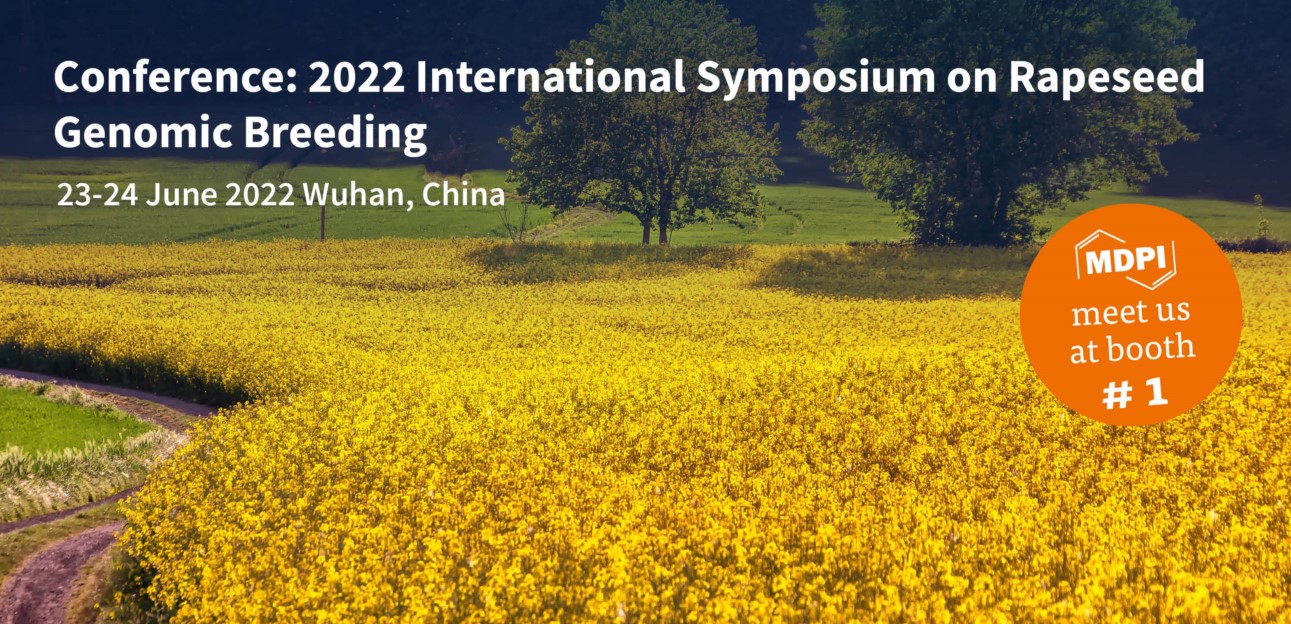Meet Us at the 2022 International Symposium on Rapeseed Genomic Breeding, 23–24 June 2022, Wuhan, China
MDPI will be attending 2022 International Symposium on Rapeseed Genomic Breeding, held in Wuhan, China, 23–24 June 2022.

Conference: 2022 International Symposium on Rapeseed Genomic Breeding
Website: http://yanglab.hzau.edu.cn/meeting_2022/index.html
Date: 23–24 June 2022
Place: Wuhan, China
As the world population grows and the climate changes, we are facing limitations and challenges related to food and energy supply. Thus, innovations in plant breeding are required to further boost the yield potential of crops and to meet the increasing demands for food and nonfood in the future. Rapeseed (Brassica napus) is an important oil crop that provides edible oil, vegetables, animal fodder, green manure, and biodiesel for life and industry worldwide, contributing significantly to ensuring global food security and economic development.
During the last decade, plant scientists working on rapeseed have benefited from the development of new technologies, including high-throughput phenotyping, third-generation sequencing, genome editing, whole genomic selection, and de novo domestication, which have been used to investigate and achieve substantial understanding of the rapeseed genome and to identify genes regulating key agronomic characteristics. Novel breeding strategies, such as speed breeding, have been developed and are being applied to overcome the limiting factors of conventional rapeseed breeding.
This symposium aims to bring together researchers and breeders, particularly those who work on rapeseed (and related species), from around the world to share and discuss cutting-edge research, the latest breeding practices, and future breeding perspectives.
The topics covered will include but are not limited to the following: (1) rapeseed genome, epigenome, and 3D genome; (2) novel genetic diversity and genomic selection; (3) genetic control of valuable agronomic traits; (4) Brassica clubroot disease; (5) transgenesis, genome editing, and novel breeding strategies; (6) prospects on future Brassica/crop breeding.
We warmly invite you to attend and participate in this meeting and look forward to welcoming you!
The following MDPI journals will be represented:
- Genes
- Agriculture
- Agronomy
- Plants
- Horticulturae
- Epigenomes
- Crops
If you are also attending this conference, feel free to stop by our booth (Booth #1). Our delegates look forward to meeting you in person to answer any questions you may have. For more information about the conference, please visit the following link:
http://yanglab.hzau.edu.cn/meeting_2022/index.html
Genes Editorial Office
